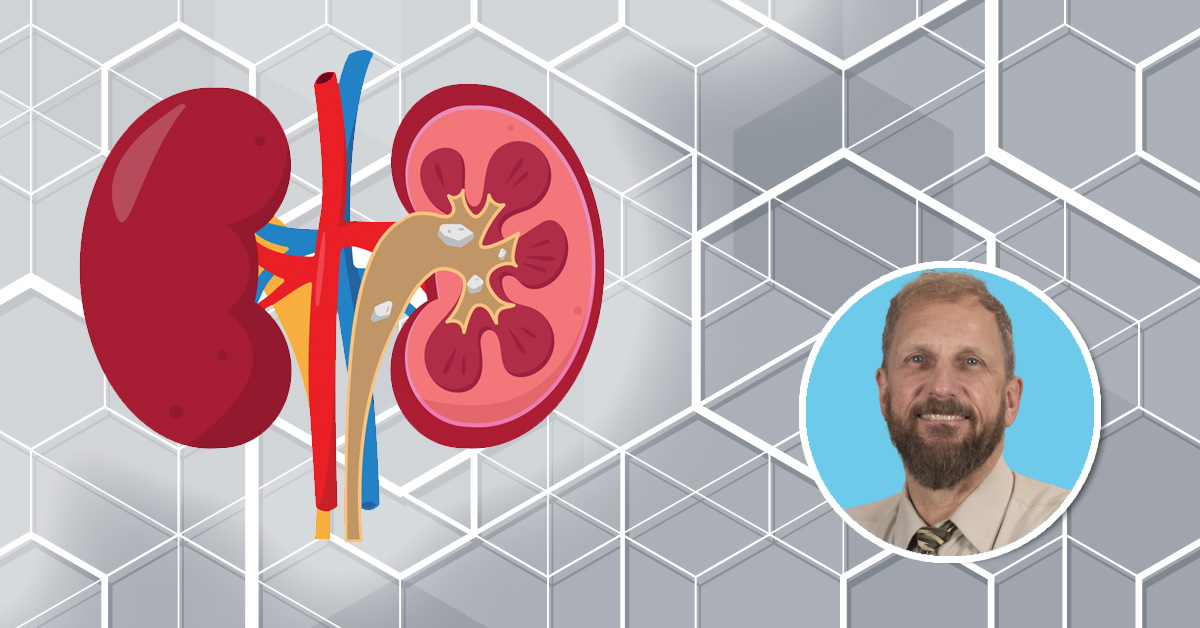“Kidney stones. You certainly don’t want them, but if you have them, we can help eliminate them.”
Those are assurances from Dr. Richard Windsor. He’s a specialist with Aurora BayCare Urological Surgeons. He knows a few things about kidney stones.
“They’re no fun,” says Windsor, a urological surgeon who sees patients in Green Bay and Kaukauna.
“If you’re diagnosed with kidney stones, you’ll want resolution fairly quickly. I’m pleased to say that we can help treat them quite expeditiously and get you feeling significantly better in short order.”
Kidney stones are common, Windsor says. About 11 percent of American men and 6 percent of American women will have kidney stones at least once during their lifetime.
“Thankfully, we have effective treatments to aid patients that are dealing with this often painful condition,” he says.
Here’s all you need to know about kidney stones.
What are kidney stones?
Kidney stones are solid material, usually resembling a pebble, that form in one or both kidneys. They vary in size and shape. Size can range from that of a grain of sand to a pea to a golf ball, though the latter is rare. They can be smooth or jagged. They usually are yellow or brown.
Who gets kidney stones?
Men are more likely to get them than women. People with a family history of kidney stones, people who have had kidney stones before and people who don’t drink enough fluids also are more likely to get them.
What causes kidney stones?
Dehydration, too much or too little exercise, obesity and a diet consisting of too much salt or sugar are just a few factors that can lead to the development of kidney stones. Family history also can play a role.
What are the symptoms of kidney stones?
Symptoms of kidney stones may include:
- Blood in the urine
- Blocked urine flow
- Sharp pain in the back, side, lower abdomen or groin
When an infection accompanies a kidney stone that is stuck in the urinary tract, symptoms may include:
- Urine that smells bad or looks cloudy
- A burning feeling while urinating
Sometimes there aren’t any symptoms. This occurs when a small stone passes easily through the urinary tract.
How are kidney stones treated?
Treatment for kidney stones depends on the size, location and type of kidney stone. Treatment for kidney stones may include:
- Medication to facilitate the passage of a stone
- The use of shock waves to break a stone into small pieces
- The use of a cystoscope or ureteroscope to find stones and break them up or remove them
- Percutaneous approaches for large stones
Treatment for kidney stones at home may include:
- Drinking more water
- Changing your diet to reduce sodium, animal protein, calcium and oxalate intake
Prevention tips
There isn’t a one-size-fits-all approach to preventing kidney stones, but there are basic steps one can make to avoid getting them, including:
- Staying hydrated
- Limiting sodium and animal protein intake
- Reducing consumption of foods with calcium oxalate
- Maintaining a healthy body weight
“It is not unusual for kidney stones to simply pass on their own,” Windsor says, “but if you’re experiencing intolerable pain due to a stubborn kidney stone or stones, contact your urological surgeon for relief. We can help.”
